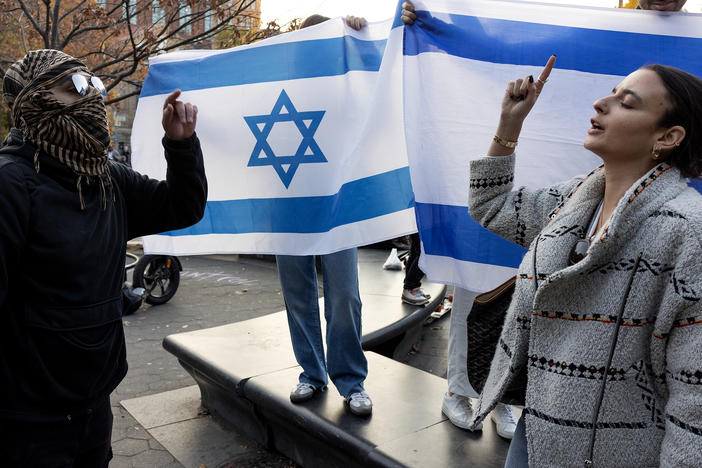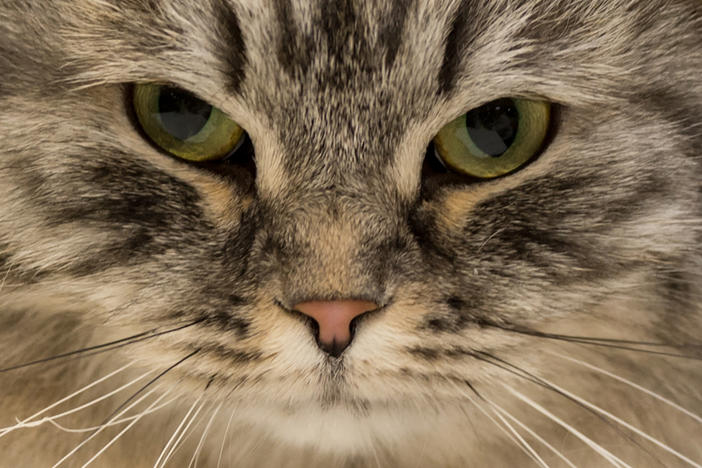Section Branding
Header Content
Al Sharpton to focus on police mental health response after Irvo Otieno's death
Primary Content
Editor's note: This story includes detailed descriptions of violence.
Irvo Otieno was killed in custody earlier this month at a psychiatric hospital while experiencing mental health distress. Reverend Al Sharpton says this has to be a turning point.
Who is he? Sharpton is a civil rights activist known for many things: as a Baptist minister, an advocate for social justice and equity, and the founder of the National Action Network.
What's the big deal? Earlier this month, Otieno, a 28-year-old Black man in Virginia, was killed in custody at a psychiatric hospital.
- Otieno was experiencing a mental health crisis, and had been taken to hospital.
- Ben Paviour, a reporter for member station VPM in Richmond, details what happened: "He was pinned to the ground by seven sheriff deputies and three hospital staff while he was handcuffed and his feet were shackled, and he never got up again. All 10 people have been charged for his death by a local prosecutor, who said they smothered Otieno to death."
- Sharpton, who delivered a eulogy at Otieno's funeral on Wednesday, says that his death is indicative of an overdue change for how authorities handle mental health crises. Sharpton is calling on Virginia Governor and potential presidential hopeful, Glenn Youngkin, for reforms.
What's he saying? Sharpton spoke with NPR's Juana Summers on Thursday about his experience at Otieno's funeral, and what he expects moving forward.
On changes he and Otieno's family hope for:
The mother, Caroline, said she would like to see a law that would deal with how you handle the question of mental illness, where law enforcement doesn't necessarily kick in, but it [instead] kicks in with people that are trained in the mental health field, with their supervision, and where there is a real kind of instruction on how you deal with causal mental health, [with] people, patients, and from families.
On why he called specifically on VA Gov. Glenn Youngkin:
Governor Youngkin is being touted by some to be a presidential candidate. And health services in Virginia are under his governorship, under his direction.
As he tries to build a national reputation, he needs to deal with a real tragedy right there in Virginia.
How he operates on this tragedy will tell those of us around the country a lot about him. You're talking about an unarmed, non-threatening, young Black man who was handcuffed and shackled, while these people piled on him, to where they literally choked the life out of him. The governor ought to respond with more than sympathy. He ought to respond with some action, [some] legislation where this can't happen again.
On how he talks to the grieving families that face these tragedies:
I tell them the truth, that we can't bring your child back. But we can certainly raise your child's situation and your situation, to where there's meaning.
That is hard to see through the immediate pain, and hard to feel there's meaning, and [that] your child could be a symbol that we cannot continue to let this happen.
And we get other family members that will come in. I've thrown Eric Garner's mother, and Trayvon Martin's mother, and Ahmaud Arbery's mother and others around, because only they understand that pain.
And I tell them, "I can't promise you when it's going to happen on a federal level. But I can promise you that we'll be there until it happens. And we will be there with you for whatever you need. In terms of counseling and others, we'll get professionals for you. Because we're committed to this." And in that candor, and honesty, I think that's why they stay with us. And we stay with them because they know that we told them in the first place what was going to happen.
Want to learn more? Listen to the Consider This episode on how specialized police units are in the spotlight again.
So, what now?
- During the eulogy, Sharpton urged for an "Irvo law" that would prevent this from happening again.
- "Jesus said, 'I'll make him a symbol where people all over who deal with mental health will have to now check themselves.' Because they'll say, 'Wait a minute, you remember what happened when Irvo got killed? We better behave differently.' You can be prosecuted and held accountable, there will be an Irvo law."
Learn more:
- A hospital surveillance video shows Irvo Otieno pinned to the floor before his death
- Dozens of inmates have died in a Houston jail since 2021. Now the FBI is investigating
- One of the deadliest federal prison units is closing
Copyright 2023 NPR. To see more, visit https://www.npr.org.
Bottom Content





